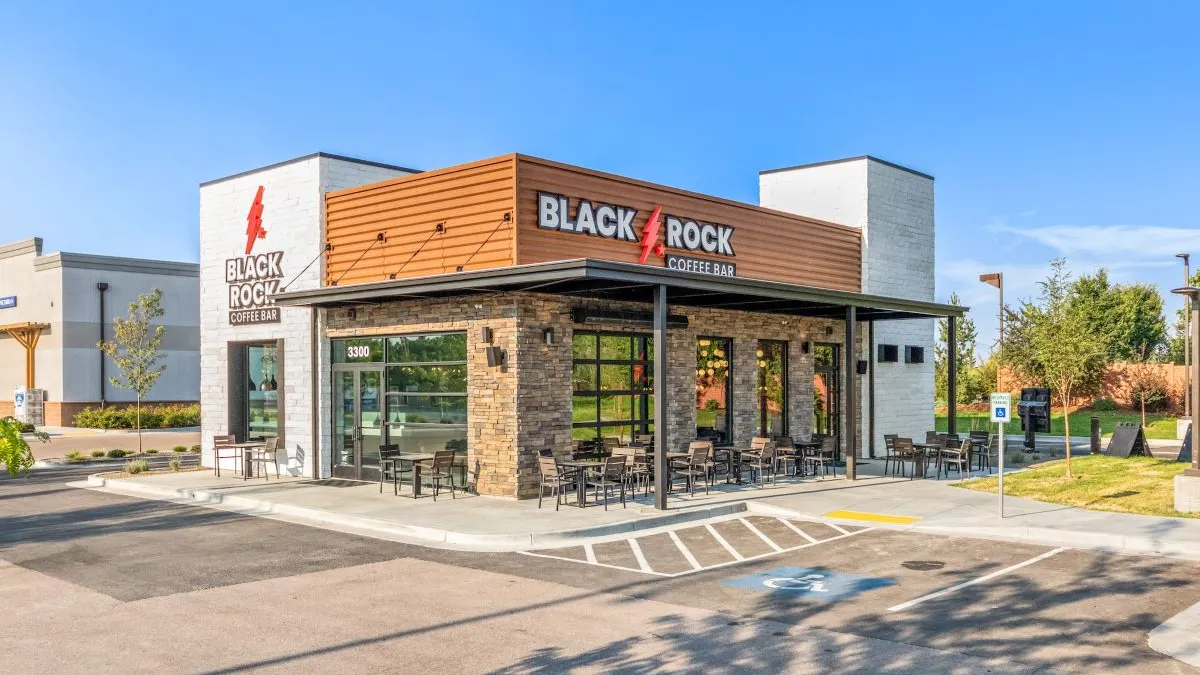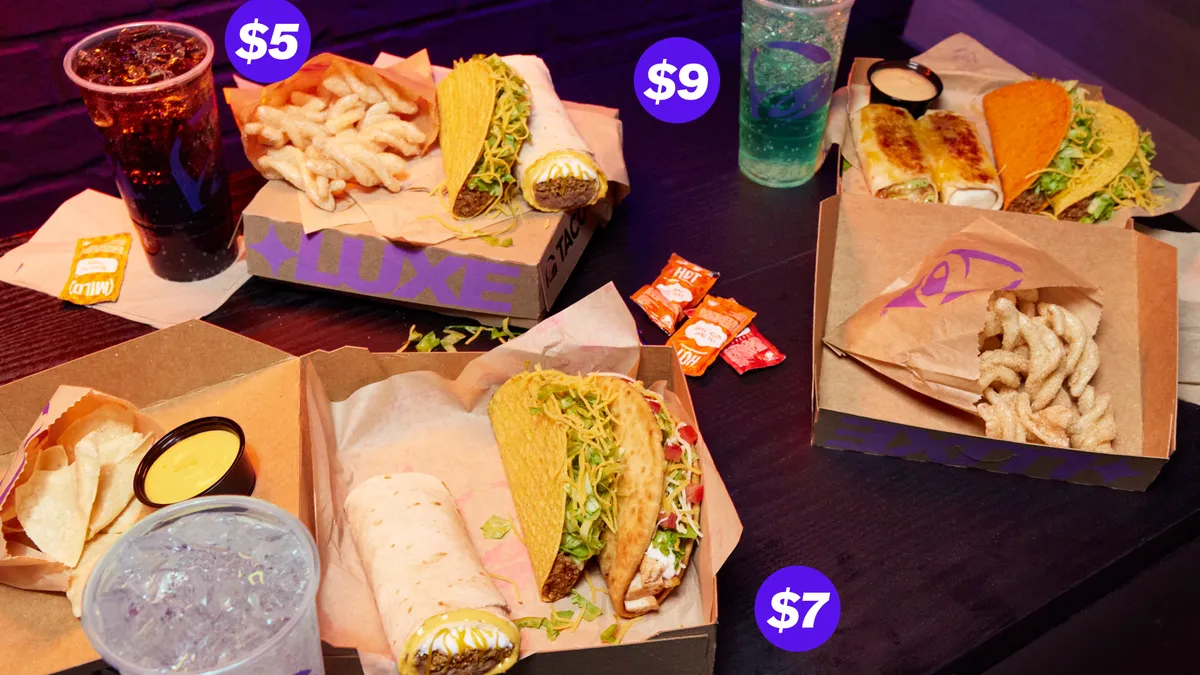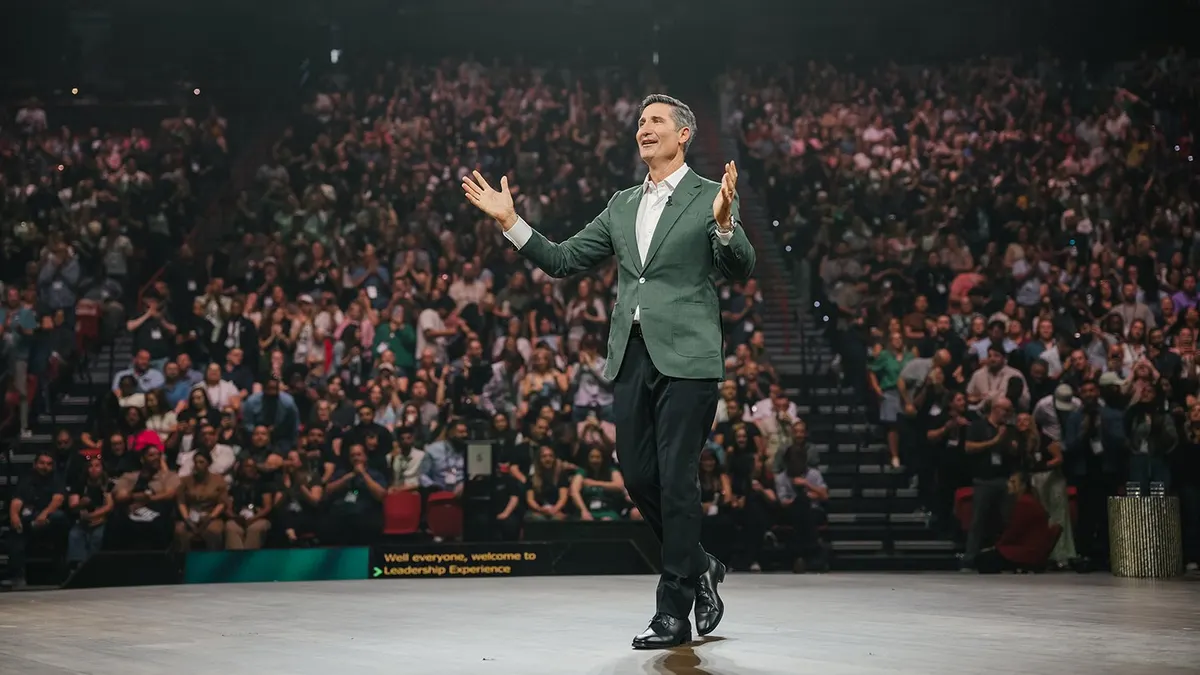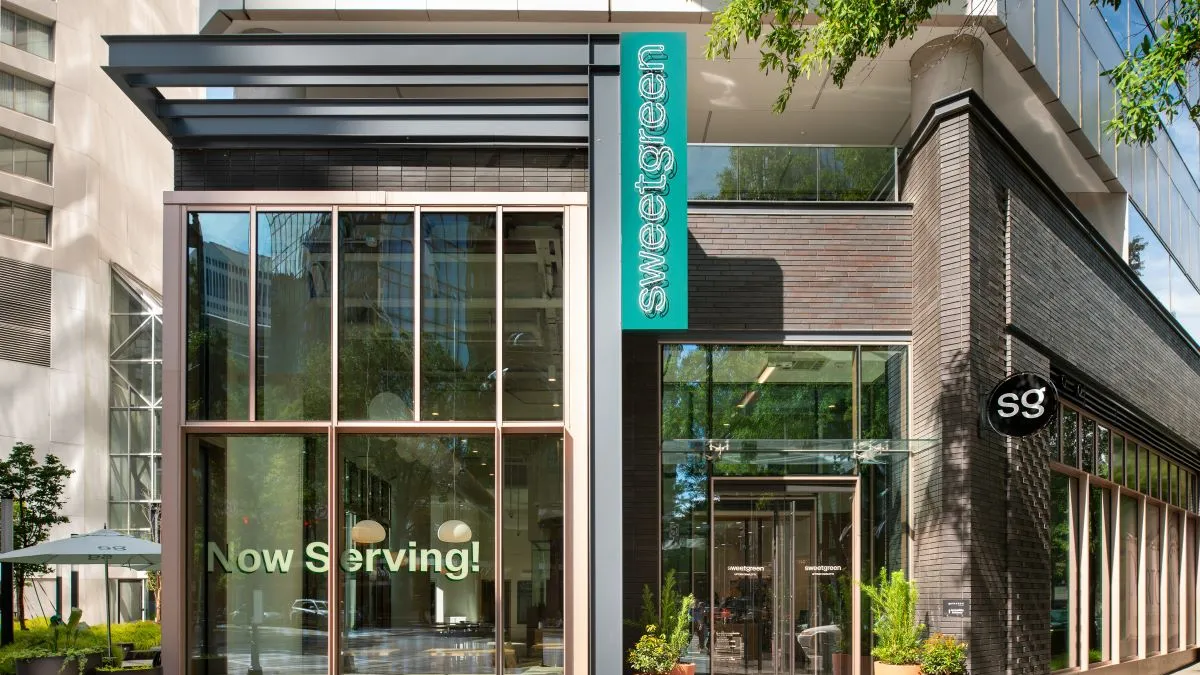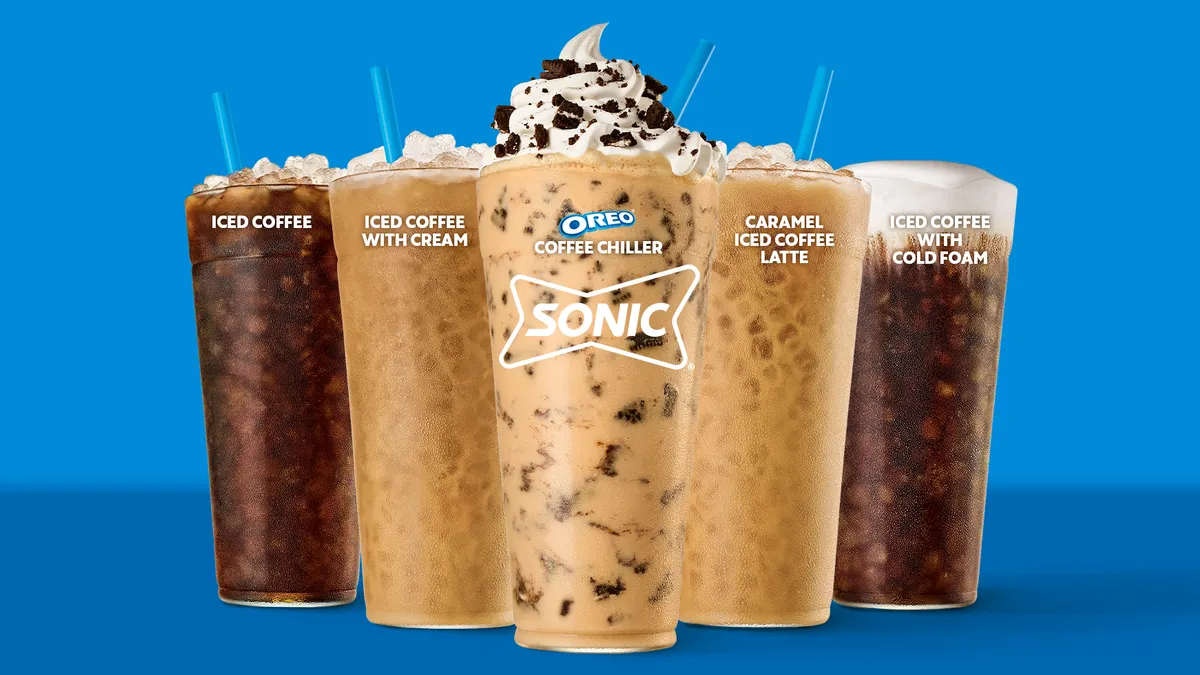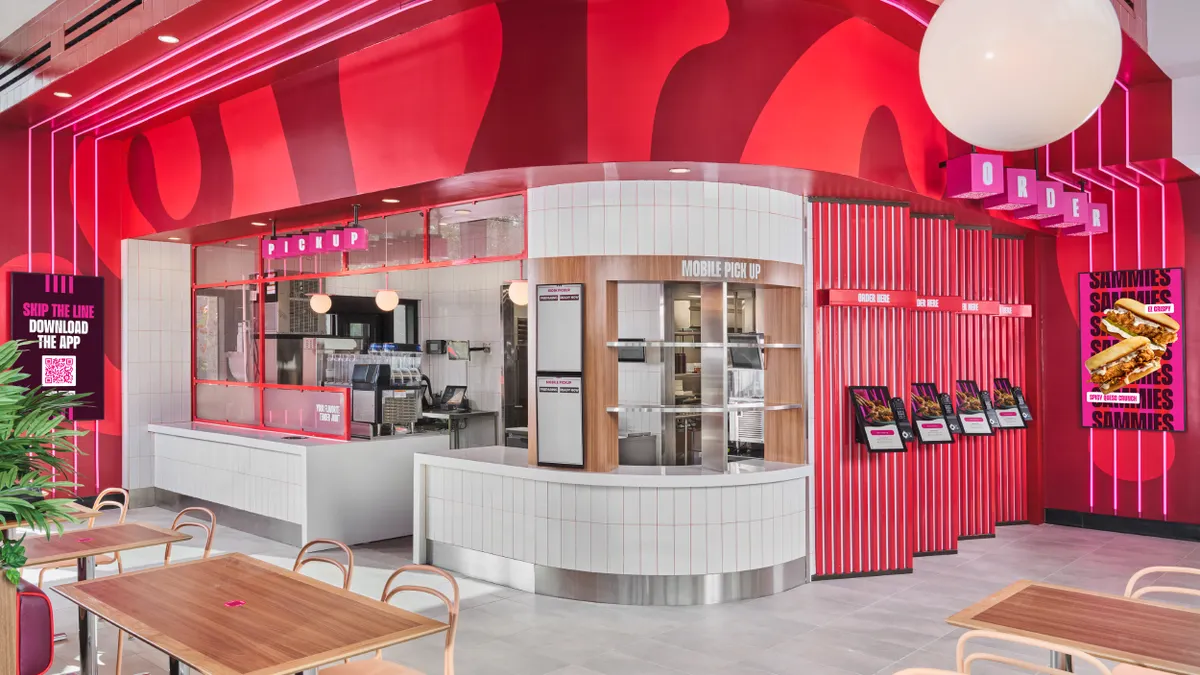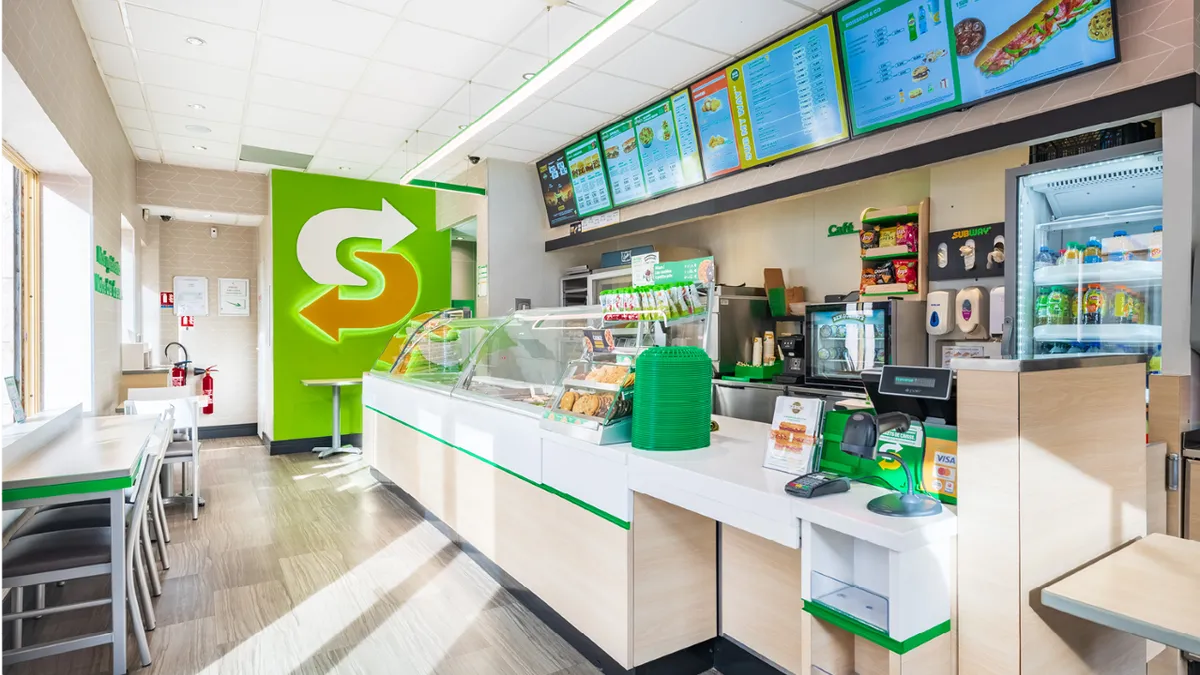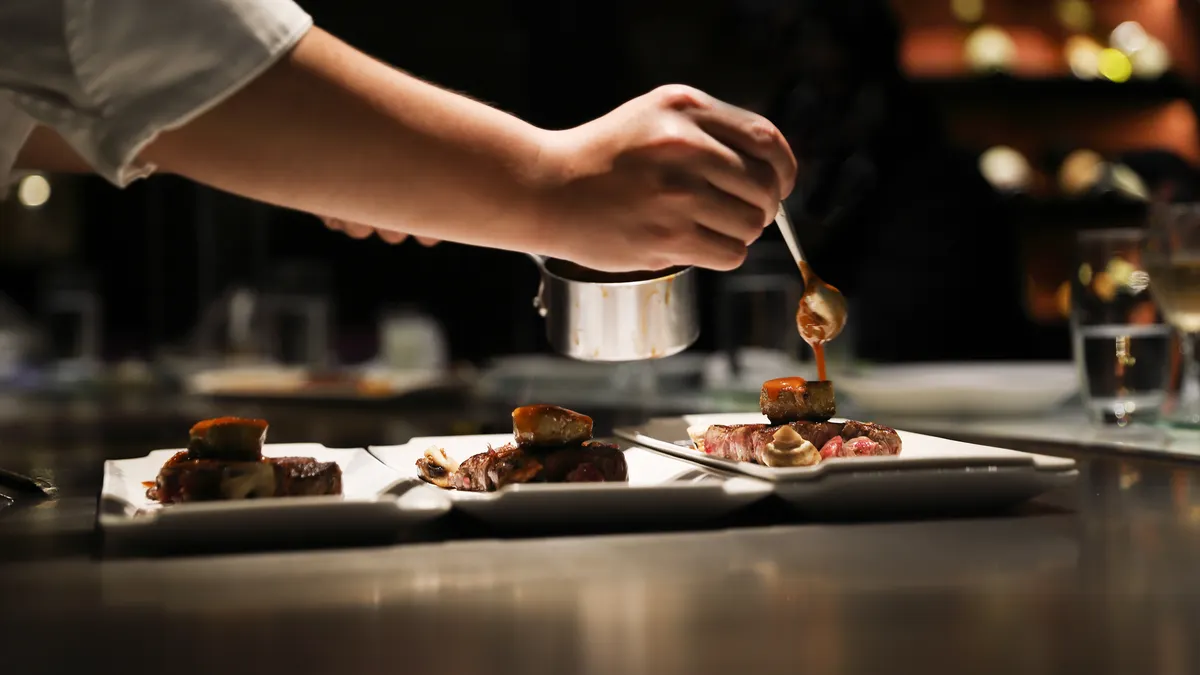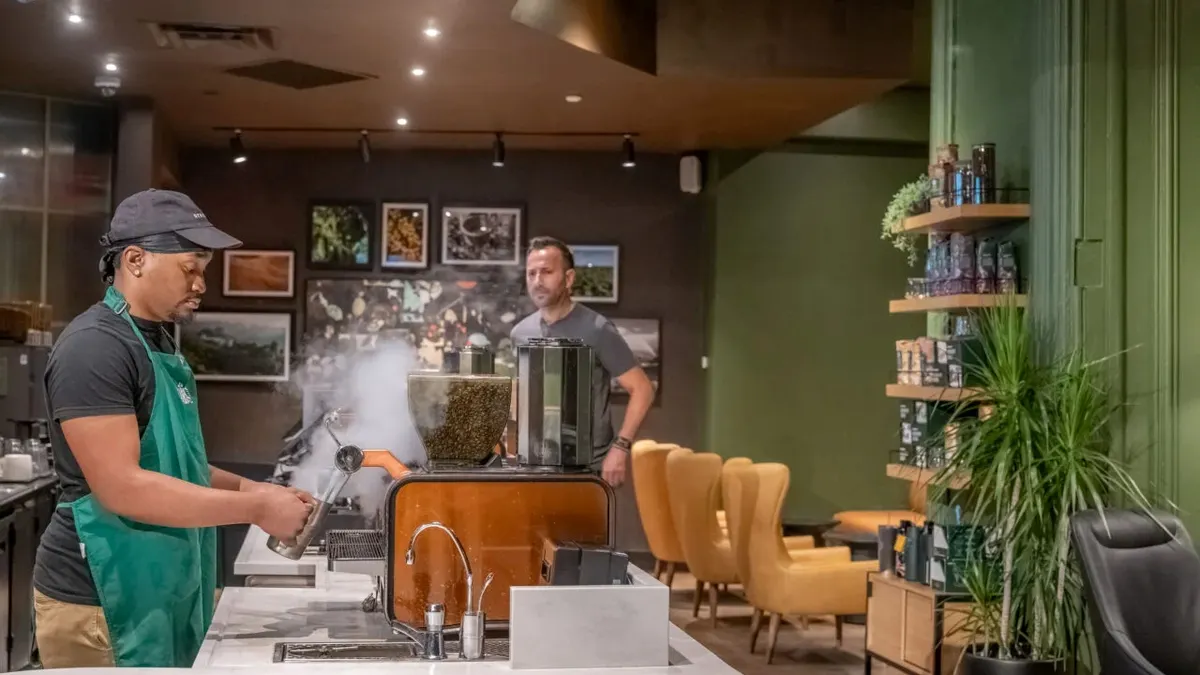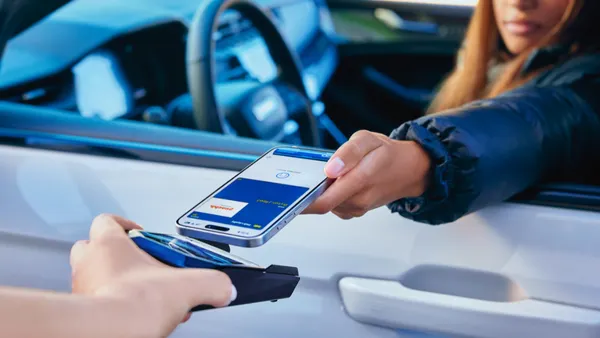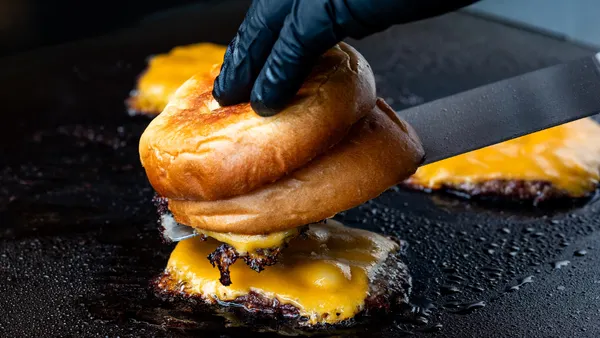American coffee consumption is at a 20-year high, with two-thirds of American adults drinking coffee on a daily basis, according to the National Coffee Association. This trend, combined with Starbucks’ recent sales stumbles and branding problems, could open up opportunities for challengers.
But with QSR brands adding to their coffee menus — even Wendy’s has flavored cold brew — the competition for consumer attention and dollars is especially fierce. This means small brands must carve out distinct niches to secure loyal customers. One such brand on the rise is Black Rock Coffee Bar.
Like Starbucks, Black Rock has a company-operated business model. For Black Rock, this level of operational control allows the brand to focus on in-store experience. The company orients its barista hiring and training around hospitality, a dynamic that brings in repeat customers despite a myriad of beverage chains to choose from, said CEO Mark Davis.
“Everybody has become a beverage [place],” Davis said. “You can see it with energy drinks, you can see it with boba tea. You can see it with the coffee experience.”
Black Rock could one day reach 1,500 units, he said, but its current plan is to take growth slowly. The brand is building up density in existing markets and neighboring regions rather than pushing for all-out national growth. Black Rock currently has 144 stores spread across seven states: Arizona, Colorado, Texas, California, Washington, Idaho and Oregon. The bulk of those are concentrated in Arizona and Texas, where Black Rock has about 50 and 40 stores, respectively.
Davis said the California stores have the highest volumes and strongest profits, and its Colorado openings have performed well. Black Rock has significant whitespace for growth in those existing markets.
“We're just trying to make sure we grow in a responsible way,” Davis said.
Davis spoke with Restaurant Dive recently to discuss Black Rock’s expansion plans, the balance between hospitality and technology, and what responsible growth means in a competitive market.
Editor’s note: This conversation has been edited for clarity and brevity.
Restaurant Dive: What sets Black Rock apart from its competitors?
Mark Davis: Black Rock in general has doubled down on the experience. Where most of the world is moving towards smaller square footage, drive-thru only, no lobbies, very transactional stores, we really lean into the experience. When you come in, it becomes a place where you would want to engage with the baristas. They are our secret sauce. They are our point of difference.
The environments within the lobbies, the way that the drive-thru is created, everything doubles down on you wanting to be there more often, more frequently. That engagement in turn drives better same-store sales.
What specifically makes baristas and in-store atmosphere exceptional?
When we go out and recruit, we are looking for people that can be engaging with any demographic across the land.
If I looked at you and asked: “When you go out to eat, how often are you blown away by the experience?” It's pretty limited. We try to be that place for everyone. We try to be that bright spot where, when you come in, you're going to have an experience that's different than what you get elsewhere.
How do you get your employees to the point where they can be that bright spot?
When we recruit you, right out of the gate, you're brought in and the team evaluates you through a shadow day and sees if you have the ability to connect with others.
You and I have both experienced it, where someone will try to have you play to a script. We have nothing like that. The idea here is that I want you to authentically connect with others, and so we work through those connection points.
There is a lot of: “Tell me about you, tell me about your family. Tell me about what you've got going on. Let's talk about your job.” It is almost at the point where, to get a job with us you would have to have someone that refers you.
We pay above minimum wage, and on top of it, you have the ability to achieve tips. And so when you look at that, there are a lot of reinforcements for a positive culture, where we drive that. If you can connect and authentically cause people to want to come back more often, you are the profile for who we want to hire.
That is reinforced through the management team, as well. They are incentivized to hire the right people and treat the right people well. Retention, in turn, allows us to have better quality team members, which in turn drives that guest experience.
When Black Rock is building a new store, what do you look for in terms of market and real estate?
We're very portable — anywhere we've gone, we've been successful. We're just trying to make sure we grow in a responsible way that allows us to have the right team members.
We have an analog software system that allows us to punch in data. It will give us an analogous market. It gives us good comparables that we can use to judge what a site will do. All units have drive-thrus and about 70% have a lobby. In 2008, when we started, the original Black Rock Coffee was a box that was drive-thru only. What we found is that the lobby experience has been so terrific for the brand, for the team, for the consumer, that we have doubled down on the lobbies wherever we can.
Now, there are great drive-thru-only spots, so we will open them. But typically, if we have our druthers and we can make the economics work, we will open with a lobby.
How are individual stores performing, on average?
We're in that $1.4 million unit volume range, and we're growing every day.
We had a punch card loyalty system when I came in. We switched the POS at the beginning of this year, which allowed us to have Paytronix implement a new, points-based loyalty system. We also work with Olo, and have a new app. That has produced just ridiculously good same-store sales.
But we're trying to make sure we do that in a responsible way, that I can still provide that great experience within the four walls, and I don't have those digital channels take over and cause your experience while you're in line to deteriorate, if that makes sense.
You want the digital to be an adjunct of the physical experience?
Digital channels can produce really high sales. The problem is digital ordering can degrade the experience that you and I would have when we're in the four walls.
The baristas understand and the management teams understand that we want you to have a great experience four walls-wise. The digital can be additive, but done in a responsible way that doesn't take away from the initial experience.
We literally put a governor [mechanism that restricts the rate of orders] on it.
So as an example: If my wife goes to the app and is going to order at a store that is slow at the minute, it will tell her she can come and have that experience. She can pick up whatever she wants, or she can go through a third-party DoorDash, as an example.
If we are busier, it will ratchet down digital orders and add time to order estimates to make sure that, in terms of sales per labor hour, we are providing that experience that we want. We are taking care of the team. If workers feel they have the ability to provide that experience in an authentic way, they're happier.
Secondarily, we're looking at transactions. We are making sure that we're staffed appropriately. We can handle volume. We're currently pushing in this quarter double-digit same-store sales, and we're tracking somewhere between that 3% and 5% uptick in transactions against the prior year.
What sets you apart from other coffee chains on the product side?
The days of the coffee shop are over. You can get just about the same beverages anywhere you go.
We have a very high-quality coffee product, we source the highest-quality beans that we can. That's certainly a point of difference.
But I would say, in general, that if you were looking for an innovative, different product, then you can get that elsewhere. Generally, we sell the same things, I would just say that we do it better. We provide an experience that's better.
What about food items? How do you source those?
We have a commissary in the Pacific Northwest and in Arizona that makes food items locally for us. In markets where we don't have the commissary, we can order food through our distributors.
But we also go with local suppliers. For example, in Austin, Texas, we have the ability to buy tacos from Tacodeli, and that's the place to get breakfast tacos.
Everything we do around food is to make sure it's of the highest quality and has a great value proposition, but that it aligns with getting you that drink within 90 seconds.
Food is secondary, with the idea that it complements the beverage.
Why go with a company-owned model, rather than franchising, for expansion?
We very much like the company-only platform because it drives consistency, it drives experience. It's very predictable. I can take you to any of our seven states, and I can take you to any of our locations, and you will have a very consistent experience.
When you franchise, that gets diluted. We may not grow as fast as some of our competition that do franchised stores, but we believe that experience is differentiating.
What do the next couple years look like in the coffee space?
In general, if you look at the U.S. consumer now, there are probably less discretionary dollars. While people are still willing to spend, they spend now more on what they see as value. When you look at any of the coffee brands out there, all of them are working hard to make sure that they have the appropriate value proposition.
Coffee, if you look at some of the statistics, is growing at a rapid rate. It will only, as a beverage, continue to grow. But what you'll find is those that cannot execute — meaning the speed, the accuracy, the experience — will struggle to continue to be successful. Those that can provide that authentic experience while providing value will continue to excel.



